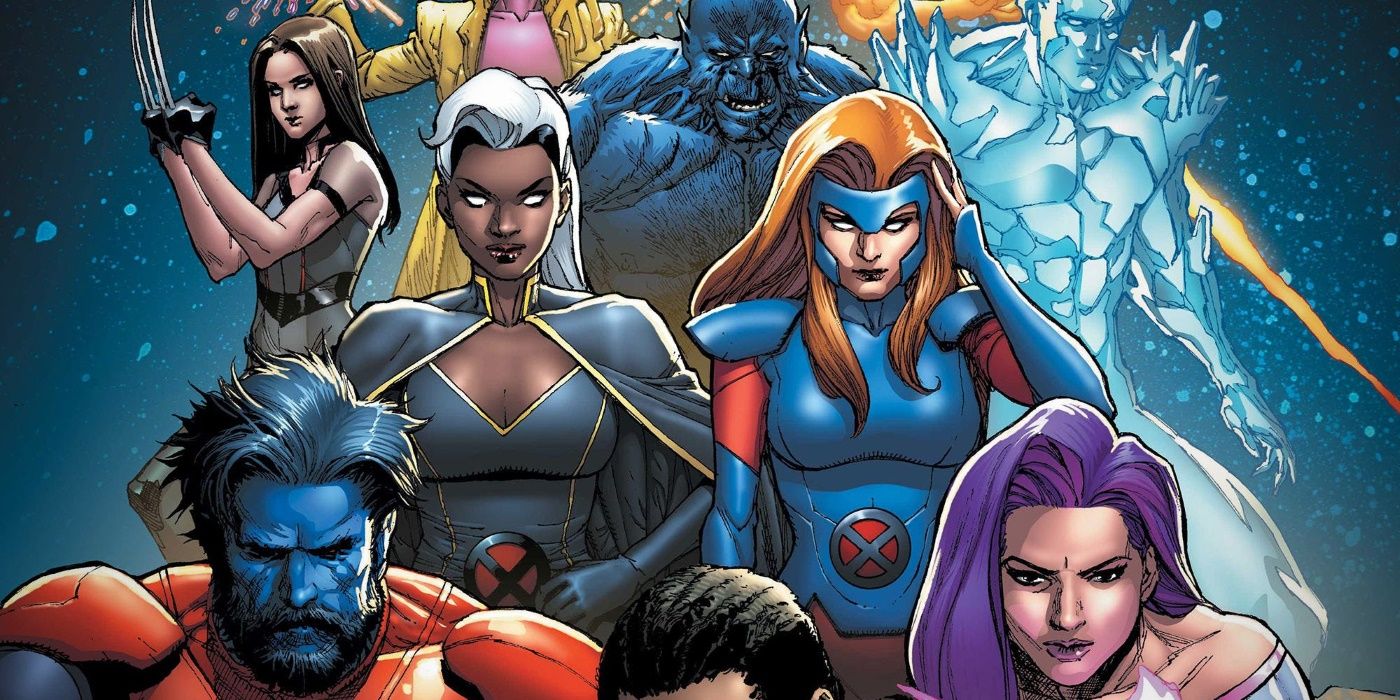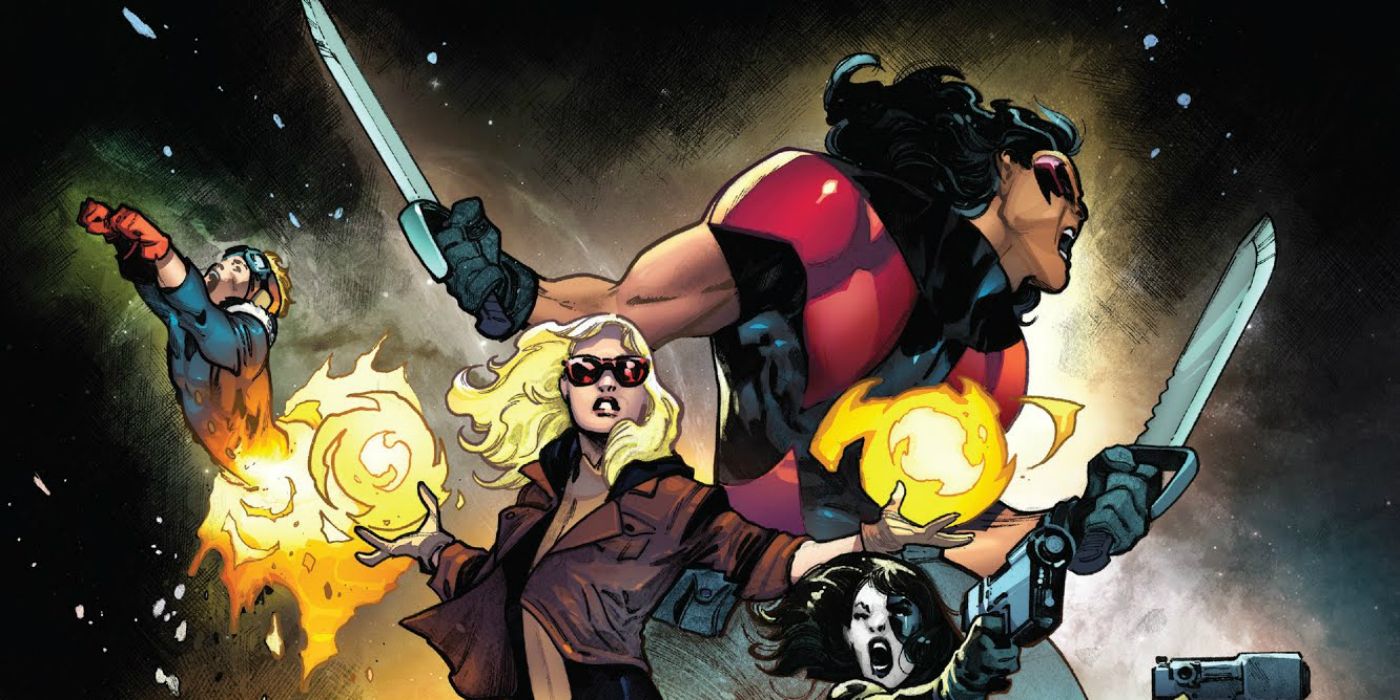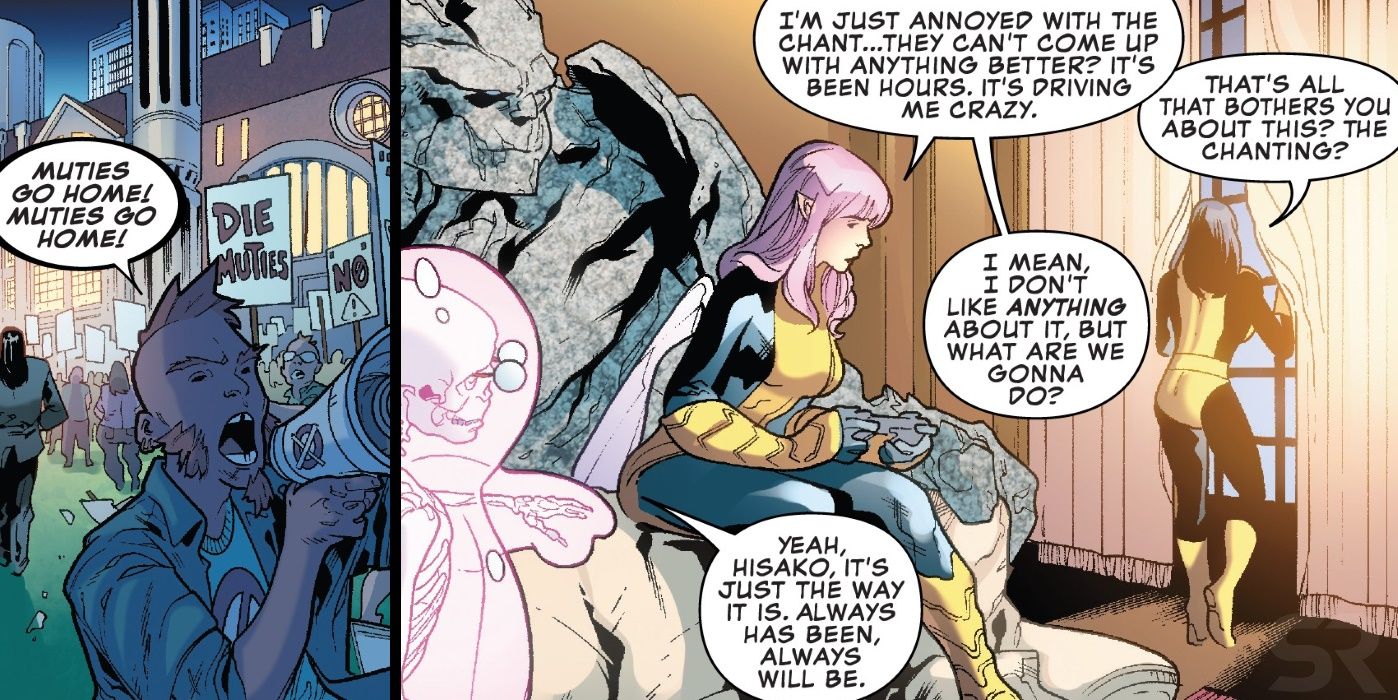The X-Men's latest relaunch is failing, and Marvel need to course-correct sooner rather than later. It's a terrible thing to feel as though you're standing in your own shadow; to have once been great, but now to be diminished, and all too aware that you've lost your place in the world. That, sadly, is the fate that has found Marvel's current world of X-Men comics.
In the '90s, the X-Men were the biggest comic book franchise around. Chris Claremont had been lead writer for decades, having built up a complex and immersive mythology that was beloved by readers. When Marvel relaunched the franchise in 1991, X-Men #1 became the best-selling comic of all time, selling an estimated 7.1 million copies. A year later, X-Force #1 became the second-best-seller, with an estimated 5 million copies sold, followed by a hit animated series that made Marvel's mutants household names.
But those glory days are gone, and nowadays the Avengers are Marvel's biggest comic book franchise, bolstered by creative decisions made in the early 2000s (and by the big-screen success of the Marvel Cinematic Universe). The X-Men feel distinctly third-tier as a result, and judging by the latest relaunches and reboots, Marvel seem to know it.
Related: Wolverine's Best Comic Costumes (That Can Work in The MCU)
Marvel's solution to a struggling brand has always been pretty simple: relaunch it until they find something that works. Thus the X-Men franchise is in its latest relaunch, canceling those that came from the previous relaunch. It's the second time this has happened in the last two years - and, unfortunately, it really isn't working out.
Right now, there's no clear sense of direction to the X-Men franchise as a whole. That becomes pretty clear if you simply attempt to try to work out the chronology and the timeline of events. The last few weeks saw the "Extermination" arc wrap up - but which books are set before the death of the fan-favorite Cable, and which are after? The same goes for the return of the All-New X-Men to their own time. Meanwhile, all the excitement has been sucked out of Wolverine's return by the fact that Marvel can't wait to use him.
In the official Return of Wolverine miniseries, the X-Men have just crossed paths with a mentally-manipulated Logan - but he's been popping in and out of other comics for over a year now, already restored to hero status and even briefly carrying an Infinity Stone. Incredibly, in December 2018 alone there have been no less than three major "events" ongoing - the end of "Extermination," the return of Wolverine, and the "Age of X-Man." It's anybody's guess how these all fit together, and as a result none of the consequences feel like they matter. Cyclops has been resurrected in the final issue of Extermination, and it doesn't seem as though the fans have even blinked.
A core part of the problem is that the X-Men franchise is utterly, implacably focused on nostalgia. The last few years have seen the returns and resurrections of Professor X, Wolverine, Cyclops, and Jean Grey. Marc Guggenheim's X-Men: Gold focused on the on-again, off-again relationship between Kitty Pryde and Colossus. There's an entire book dedicated to Gambit and Rogue. The latest Uncanny X-Men series includes a "cure" plot lifted straight from the pages of Joss Whedon's Astonishing X-Men. Rob Liefeld's X-Force team has reunited. And the entire "Age of X-Man" event is a '90s throwback featuring the return of Nate Gray, a character who'll be unknown to anybody who hasn't read X-Men books from 20 years ago, and it even features a return to the "Age of Apocalypse" reality. It's as though the X-Men comics know their halcyon days are behind them, and their plots implicitly acknowledge it.
Sometimes the acknowledgment isn't even implicit, as Ed Brisson's Uncanny X-Men #3 contained a scene in which even the X-Men admitted their plots are getting old. Listening to an anti-mutant speech, Jubilee reflected that it was all so very familiar to her. "I feel like I've seen this speech a million times, Bishop," she observed. "When are they gonna just let it go already?" The latest issue of Kelly Thompson's Mr & Mrs X mocked it as well. "We've seen this before," the intergalactic showman Mojo rants, "We need something new!" Comments like this show a real sense of self-awareness, but that's not enough.
When writer Grant Morrison started out his X-Men run in the early 2000s, he kicked things off with a similar scene, with Wolverine hacking at a Sentinel's body and a disinterested Cyclops telling him he thought he could cut it out now. It was, again, a commentary on the state of the X-Men franchise; but Morrison moved on from mere commentary, relaunching the X-Men in a new, fresh direction. His decisions were bold and controversial - but they breathed new life into an ailing franchise. Right now, the X-Men writers look as though they know there are similar problems, but either they don't know what to do about it, or editorial restrictions aren't allowing them to face these issues head-on. And it's too late to help the most promising books that were replaced in favor of another reboot, instead of being given the room needed to show the right direction for the rest of the X-Men universe to head.
For the sake of the X-Men franchise, that needs to change.



